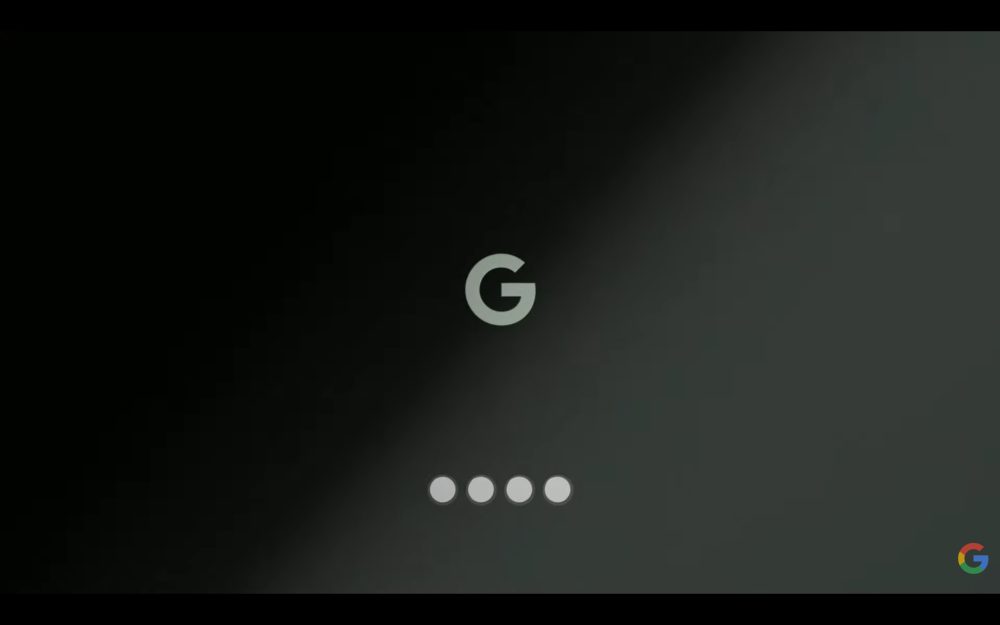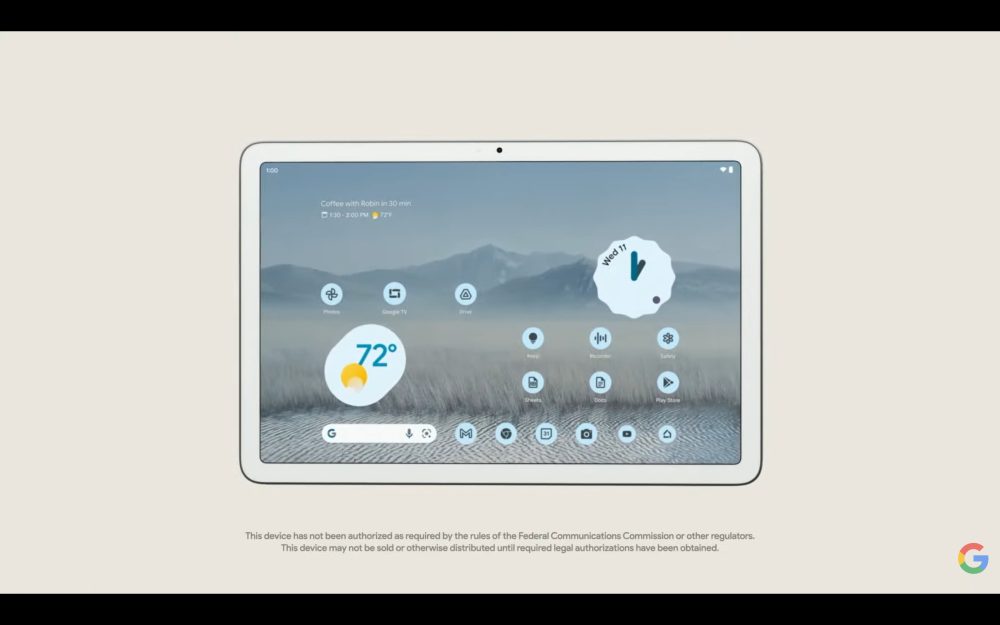
Despite being marketed thus far as a “Pixel tablet,” Google’s next foray into large screens will actually serve to replace the Nest Hub in your home, with a suite of familiar features.
Earlier this year, we reported that the Made by Google division was working on a new Nest Hub that we speculated could be powered by Android. Shortly thereafter, Google revealed its plans to launch a Pixel tablet in 2023.
While very little was shared about the tablet’s features, we did get a decent look at both its front and rear in renders. Despite the “Pixel” name, the 2023 tablet features prominent white bezels, a signature design trait of the Nest Hub series.
Meanwhile, around the back you can see “pogo pins” to connect the Pixel tablet to something else, though Google made no allusions as to what that accessory might be. We now have a much firmer idea of what these pins will be used for thanks to newly discovered Android code.
Just as we had initially reported, Google’s upcoming tablet will connect to a dedicated “dock” — somewhat humorously referred to as “Google Dock” in the code, though this is unlikely to be the final product name. Like you’d expect, this dock will charge the tablet’s battery when you’re not using it, and according to our previous report, it should also double as a home speaker.

With the power of full Android apps, the Pixel series’ next-generation Google Assistant, and the presumably large display size, this tablet stands to be the best smart display for media consumption.
But what about the helpful ambient features of the Nest Hub series? For example, every Nest Hub is able to use ultrasound to know when you’re walking up to it and respond accordingly. Google has begun preparing this same capability within Android, with new support for both playing and recording ultrasonic waves, undoubtedly for the Pixel Tablet.
Similarly, as we shared earlier last month, Google is using its Health Studies app to let employees collect and submit sleep-related data from their Android phones. This could potentially serve as a major combination and expansion of the sleep tracking features available across Pixel, Nest Hub, and Fitbit, all to the benefit of the Pixel tablet.
Putting it all together, while next year’s large screen device is undoubtedly the long-awaited Pixel tablet, in many ways it’ll also be the culmination of Google’s efforts and ambitions for the Nest Hub series.

One of the bigger questions that remains is one of pricing. With its (frequently discounted) retail price of $99, the 2nd gen Nest Hub manages to be a reasonably priced entry point for adding the Google Assistant to your home. While Google has not shared a retail price for the Pixel tablet, it will surely cost significantly more than even the $229 Nest Hub Max, and we can’t even be sure that the dock won’t be a separate purchase.
That being the case, it seems likely to us that Google will continue to make affordable entries in the Nest Hub series for the foreseeable future. But if you’re looking for a smart display that can also do a whole lot more, the Pixel tablet looks ready to be your next Nest Hub.
More on Google Pixel:
- Likely Google Pixel tablet gets USI certification and stylus support
- Someone used the Pixel 7 Pro for three weeks without realizing it
- A mysterious high-end Pixel phone may be in the works
Author: Kyle Bradshaw
Source: 9TO5Google



